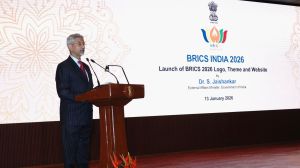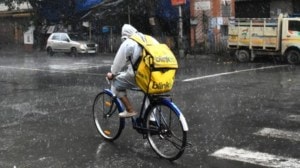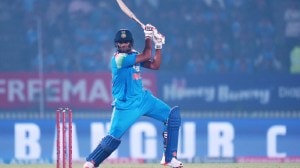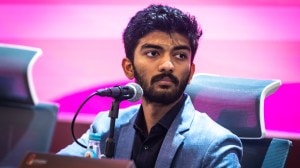Cabinet approves caste Census: The debate, and the government’s stand over the years
Caste Census India 2025, Political debate on caste data: The decision has come at a time when the Opposition — particularly Congress leader Rahul Gandhi — has adopted caste census as a key issue.
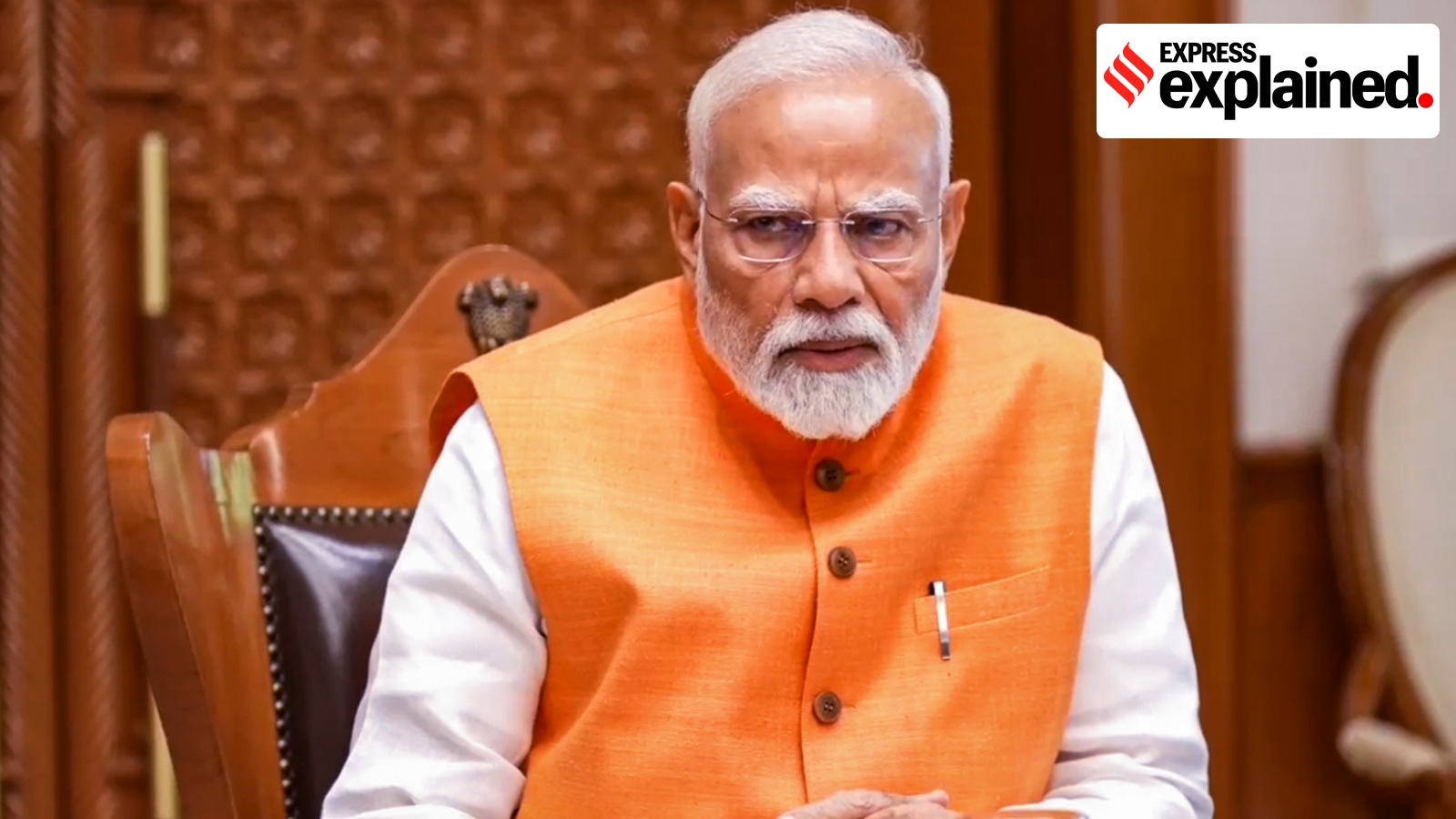 Cabinet approves caste Census: PM Modi chairs a meeting with Defence Minister Rajnath Singh, NSA Ajit Doval and armed forces chiefs in New Delhi on Tuesday. (PTI Photo)
Cabinet approves caste Census: PM Modi chairs a meeting with Defence Minister Rajnath Singh, NSA Ajit Doval and armed forces chiefs in New Delhi on Tuesday. (PTI Photo) Caste Census India 2025: The Cabinet Committee on Political Affairs (CCPA) has approved caste enumeration in the forthcoming population census, Union Minister Ashwini Vaishnaw said on Wednesday (April 30).
“Under the leadership of Prime Minister Shri Narendra Modi, the Cabinet Committee of Political Affairs has decided today… that caste enumeration should be included in the forthcoming Census. This demonstrates that a government is committed to the values and interests of a society and country,” he said.
The decision has come at a time when the Opposition — particularly Congress leader Rahul Gandhi — has adopted caste census as a key issue.
What kind of caste data is published in the Census?
Every Census in independent India from 1951 to 2011 has published data on Scheduled Castes and Scheduled Tribes, but not on other castes. Before that, every Census until 1931 had data on caste.
However, in 1941, caste-based data was collected but not published. M W M Yeats, the then Census Commissioner, said in a note: “There would have been no all India caste table… The time is past for this enormous and costly table as part of the central undertaking…” This was during World War II.
In the absence of such a Census, there is no proper estimate for the population of Other Backward Classes (OBCs), various groups within the OBCs, and others. The Mandal Commission estimated the OBC population at 52%, some other estimates have been based on National Sample Survey data, and political parties make their own estimates in states and Lok Sabha and Assembly seats during elections.
The demand for a caste Census comes up before almost every Census, as records of debates and questions raised in Parliament show. It usually comes from among those belonging to OBCs and other deprived sections, while sections from the upper castes oppose the idea.
What has been the current government’s stand?
Although the current government announced on Wednesday to conduct a caste Census, in July 2021, it said it had no plans to carry out such a Census.
Union Minister of State for Home Affairs Nityanand Rai had said in response to a question in Lok Sabha: “The Government of India has decided as a matter of policy not to enumerate caste-wise population other than SCs and STs in Census.”
But on August 31, 2018, following a meeting chaired by then Home Minister Rajnath Singh that reviewed preparations for Census 2021, the Press Information Bureau stated in a statement: “It is also envisaged to collect data on OBC for the first time.”
When The Indian Express filed an RTI request asking for the minutes of the meeting, the Office of Registrar General of India (ORGI) responded: “Records of deliberations in ORGI prior to MHA (Ministry of Home Affairs) announcement on August 31, 2018 to collect data on OBC is not maintained. There was not issued any minutes of the meeting.”
Where did the UPA stand on this?
In 2010, then Law Minister Veerappa Moily wrote to then Prime Minister Manmohan Singh calling for collection of caste/community data in Census 2011.
On March 1, 2011, during a short-duration discussion in Lok Sabha, then Home Minister P Chidambaram spoke of several “vexed questions”: “There is a Central list of OBCs and State-specific list of OBCs. Some States do not have a list of OBCs; some States have a list of OBCs and a sub-set called Most Backward Classes. The Registrar General has also pointed out that there are certain open-ended categories in the lists such as orphans and destitute children. Names of some castes are found in both the list of Scheduled Castes and list of OBCs. Scheduled Castes converted to Christianity or Islam are also treated differently in different States. The status of a migrant from one State to another and the status of children of inter-caste marriage, in terms of caste classification, are also vexed questions.”
Amid uproarious scenes, the then Prime Minister said: “I assure you that the Cabinet will take a decision shortly.” Later, a Group of Ministers was constituted under then Finance Minister Pranab Mukherjee. After several rounds of deliberations, the UPA government decided to go for a full-fledged Socio Economic Caste Census (SECC).
What happened to the SECC data, then?
With an approved cost of Rs 4,893.60 crore, the SECC was conducted by the Ministry of Rural Development in rural areas and the Ministry of Housing & Urban Poverty Alleviation in urban areas. The SECC data excluding caste data was finalised and published by the two ministries in 2016.
The raw caste data was handed over to the Ministry of Social Justice and Empowerment, which formed an Expert Group under former NITI Aayog Vice-Chairperson Arvind Pangaria for classification and categorisation of data. It is not clear whether it submitted its report; no such report has been made public.
The report of a Parliamentary Committee on Rural Development presented to the Lok Sabha Speaker on August 31, 2016, noted about SECC: “The data has been examined and 98.87 per cent data on individuals’ caste and religion is error free. ORGI has noted incidence of errors in respect of 1,34,77,030 individuals out of total SECC population of 118,64,03,770. States have been advised to take corrective measures.”
What is the contrary view?
In September 2024, the Rashtriya Swayamsevak Sangh (RSS) indicated its support for a caste Census, while adding that it should not be used for political or electoral purposes.
Addressing a press conference, RSS publicity in-charge Sunil Ambekar said: “The RSS thinks that definitely, for all welfare activities, particularly those targeting such communities or castes which are lagging behind – for whom special attention is needed – for that, if sometimes the government needs the numbers, it is a well-established practice. Earlier also, it (the government) has taken (such data), and so it can do it again. But it should be done only for the welfare of those communities and castes. It should not be used as a political tool for elections. So we put this forth with a line of caution for everyone.”
However, the organisation has opposed the idea earlier. On May 24, 2010, when the debate on the subject had peaked ahead of Census 2011, then RSS sar-karyawah Suresh Bhaiyaji Joshi had said in a statement from Nagpur: “We are not against registering categories, but we oppose registering castes.”
He had said a caste-based census is against the idea of a casteless society envisaged by leaders like Babasaheb Ambedkar in the Constitution and will weaken ongoing efforts to create social harmony.
- 01
- 02
- 03
- 04
- 05












